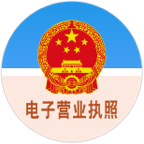Note: The English version is provided below.
8月31日晚,东芯股份发布公告,拟以自有资金约2.11亿元参与砺算科技新一轮融资。增资完成后,东芯股份持有砺算科技股权由37.88%略降至35.87%,仍为第一大股东。本轮融资总额约5亿元,投前估值35亿元,投后估值突破40亿元。
砺算科技成立于2022年4月,致力于高性能图形渲染GPU研发。其首款产品“7G100”系列显卡于今年7月发布,实测性能对标英伟达RTX 4060,在部分跑分中甚至略有优势,且可流畅运行《黑神话:悟空》等大型游戏。然而,砺算尚未实现收入,亏损持续扩大,净资产已转为负值。尽管如此,东芯在公告中强调,投资是基于砺算“发展潜力”的独立决策,旨在强化公司核心竞争力。
从战略层面看,东芯股份此次增资不仅为砺算注入量产所需资金,更在治理结构上进一步明确了双方的合作关系。砺算董事会共设7席,创始团队委派4名,东芯委派2名,其他投资人委派1名,总经理由董事会聘任,财务负责人则由东芯委派。这一安排既保留了创始团队的技术主导权,也通过财务监管体现了东芯作为大股东的风险控制意识。
估值方面,砺算本轮投前35亿元的估值虽显著低于部分国内同行业企业,但仍反映出市场对其技术积累和产品进展的认可。与海外对标企业如美国Rivos相比,Rivos在未量产阶段估值已达5亿美元,且计划在2026年量产,晚于砺算约一个季度。砺算若能按计划于9月启动量产,并逐步实现营收,其估值仍有较大上行空间。
然而挑战不容忽视。砺算面临的是英伟达、AMD等国际巨头主导的高壁垒市场,同时需与摩尔线程、沐曦等国内厂商竞争。其产品目前聚焦图形渲染,虽东芯在公告中提及“AI加速”潜力,但能否在算力卡领域打开局面,仍需技术迭代与生态适配。此外,客户导入、市场接受度及量产良率等环节,均存在不确定性。
对东芯而言,此次投资既是机遇也是风险。其股价自7月底以来涨幅超过200%,市值突破500亿元,市场显然对砺算的技术突破给予高预期。但东芯自身上半年仍亏损1.11亿元,存储主业增长尚不足以覆盖研发投入。若砺算能量产成功并打开市场,东芯有望通过股权价值提升和战略协同受益;反之,则可能面临投资减值与市场信心回落的多重压力。
国产GPU的竞争已步入深水区,技术突破只是第一步,量产、生态与商业化能力才是真正的试金石。砺算能否在巨头环伺中走通一条自主之路,东芯的这笔投资又能否如愿兑现价值,仍需时间给出答案。
Another Boost for Domestic GPUs: Dosilicon Invests 211 Million Yuan to Boost Lisuan Tech
On the evening of August 31, Dosilicon announced plans to invest approximately 211 million yuan of its own funds in Lisuan Tech's latest funding round. Following this capital increase, Dosilicon's stake in Lisuan Tech will slightly decrease from 37.88% to 35.87%, though it will remain the largest shareholder. The total amount raised in this round is about 500 million yuan, with a pre-investment valuation of 3.5 billion yuan and a post-investment valuation exceeding 4 billion yuan.
Founded in April 2022, Lisuan Tech is dedicated to the development of high-performance graphics rendering GPUs. Its first product, the "7G100" series graphics card, was launched in July this year. Benchmark tests show its performance is comparable to NVIDIA's RTX 4060, with slight advantages in some tests, and it can smoothly run large-scale games like Black Myth: Wukong. However, Lisuan Tech has yet to generate revenue, and its losses continue to widen, with its net assets turning negative. Despite this, Dosilicon emphasized in its announcement that the investment is an independent decision based on Lisuan Tech's "growth potential," aimed at strengthening Dosilicon's core competitiveness.
From a strategic perspective, Dosilicon's capital injection not only provides Lisuan Tech with the funds needed for mass production but also clarifies the cooperative relationship between the two companies in terms of governance structure. Lisuan Tech's board of directors consists of seven seats: four appointed by the founding team, two by Dosilicon, and one by other investors. The general manager is appointed by the board, while the financial director is appointed by Dosilicon. This arrangement preserves the founding team's technical leadership while reflecting Dosilicon's risk control awareness as the major shareholder through financial oversight.
In terms of valuation, Lisuan Tech's pre-investment valuation of 3.5 billion yuan is significantly lower than some domestic peers but still reflects market recognition of its technological accumulation and product progress. Compared to overseas counterparts like the U.S.-based Rivos, which reached a valuation of $500 million without achieving mass production and plans to begin production in 2026 (about a quarter later than Lisuan Tech), Lisuan Tech's valuation has room for growth if it can start mass production as planned in September and gradually generate revenue.
However, challenges remain. Lisuan Tech operates in a high-barrier market dominated by international giants like NVIDIA and AMD, while also competing with domestic players such as Moore Threads and MetaX. Its current products focus on graphics rendering, and although Dosilicon's announcement mentions potential in "AI acceleration," success in the computing card segment will depend on technological iteration and ecosystem adaptation. Additionally, uncertainties exist in customer adoption, market acceptance, and mass production yield.
For Dosilicon, this investment represents both an opportunity and a risk. Its stock price has surged over 200% since late July, with its market capitalization exceeding 50 billion yuan, indicating high market expectations for Lisuan Tech's technological breakthroughs. However, Dosilicon itself reported a loss of 111 million yuan in the first half of the year, as growth in its core memory business remains insufficient to cover R&D expenses. If Lisuan Tech succeeds in mass production and market penetration, Dosilicon could benefit from increased equity value and strategic synergies. Conversely, it may face investment impairment and a loss of market confidence.
The competition in domestic GPUs has entered a critical phase. Technological breakthroughs are only the first step; mass production, ecosystem development, and commercialization capabilities are the real tests. Whether Lisuan Tech can carve out an independent path amidst fierce competition and whether Dosilicon's investment will yield the expected returns remain to be seen.
来源: 与非网,作者: 夏珍,原文链接: /article/1885033.html
 芯耀
芯耀




 6120
6120









